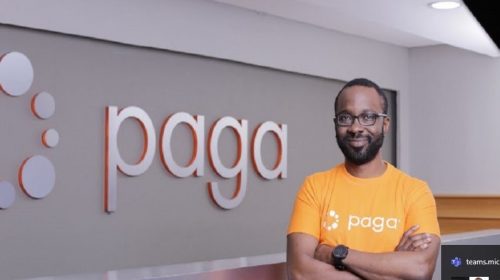NAFDAC, NATIONAL COUNTER-TERRORISM CENTRE PARTNER ON DRUG ABUSE, ALCOHOLISM, CHEMICAL MISUSE

The National Agency for Food and Drug Administration and Control (NAFDAC) and National Counter-terrorism Centre (NCTC) have committed to continue to work together to combat the menace of drug abuse in the country, misuse of chemicals and alcoholism with their associated dangers to the wellbeing of Nigerians.
This hint was dropped recently during a courtesy call by the management of NAFDAC led by its Director General, Prof Mojisola Adeyeye to NCTC headquarters in Abuja at the instance of the latter with a view to enhancing and strengthening the already existing robust working partnership.
‘’The purpose of the visit is to strengthen the working partnership between the two agencies which have similar interests including but not limited to the fight against drug abuse, chemical misuse and alcoholism which have been traced as major contributors to acts of terrorism’’, said Prof Adeyeye as she expressed her agency’s readiness to work with the Centre to achieve a common goal.
The NAFDAC boss who noted that the collaboration was very positive recalled how she was told about a year into her first tenure as DG by someone in a privileged position in the society that there was an abuse of Tramadol.
She said her Agency is now using what is called ‘’Track and Trace’’, using the Traceability tool. NAFDAC has so far been recognized as the leading Agency in Africa in terms of use of barcoding to trace where the medicine goes from the manufacturer to the end user.
Exuding self-confidence in the system, she said ‘’unless the user is not on planet earth, we can trace it. We have global positioning systems that can pinpoint the medicine to the nearest location’’.
Prof Adeyeye, in a statement by the Resident Media Consultant to NAFDAC, Sayo Akintola on Sunday, pointed out that this is so important because the use of narcotics can alter the minds of its users and can lead to extremism, terrorism, loss of lives and loss of livelihood.
While congratulating the National Coordinator of NCTC for the monumental achievement in building this new Centre, she said ‘’to me, this shows commitment to integration’’, noting that silos mentality was what we were doing or sometimes we still do it. We cannot work in silos. It is when we work together, that we bring agencies of government together and we get a lot of results’’.
She pledged that the collaboration is guaranteed in terms of NAFDAC’s commitment and for this Centre in terms of research. She further added that, ‘’we can only do research in collaboration with other agencies or the academia which has been a major contributor to the growth of NAFDAC to higher grounds.’’
’This new Centre to me shows integration, noting that she instituted focus groups in NAFDAC ‘’because silo mentality was what we were doing or sometimes we still do it. We cannot work in silos. It is when we work together, we bring agencies of government together that we get a lot of results’’.
She pledged that the collaboration is guaranteed in terms of NAFDAC and this Centre in terms of research, adding that ‘’we can only do research in collaboration with other agencies or the academia. The growth of NAFDAC is leading us to higher grounds’’.
The National Coordinator of NCTC, Rear Admiral Yaminu Musa explained that the essence of the partnership is to draw up the modalities of partnership between the two agencies, stressing that ‘’It’s only when we partner with you, that you become aware that things we can do on your behalf then we can be called useful’’.
According to him, the two agencies had some engagements in the past and some decisions were taken, asking rhetorically ‘’to what extent have the decisions been implemented and what are the factors mitigating against implementation of those not implemented that we can review because we are starting a new race?’’.
He further said, this is the right time for the two agencies to review previous activities and be able to re-strategize and inform the new government on areas that needed further push whether it is policy push or strategy categorization of plans.
Rear Admiral Yaminu Musa added, ‘’If we do it now and we do it right we will be setting the new government on that pedestal to understanding us better and for us to be able to deliver more for the government’’.
He gave the history of the centre which started as a directorate under the Office of the National Security Adviser (ONSA) and now established as the National Counter Terrorism Centre. He highlighted the milestones of the “Centre” and recognised NAFDAC as a formidable stakeholder in the centre’s evolution and development of some of its policies in addressing some issues of insecurity in the country.
He enthused that the centre intends to partner with research-based institutions like NAFDAC in many areas and access global support to be domiciled at relevant institutions that require it for the purpose of operational use, training purpose, and research, including equipment.
The meeting also discussed issues on how importation could be controlled, the necessary agencies to pass through when importing and the documents to be obtained before importation could be deemed to be lawful.
He disclosed that his Centre held strategy meetings with other agencies of government, noting that ‘’this is the first we are having it at the level of the two heads of government agencies.
In a related development, officials of NAFDAC busted peddlers of unauthorized chemicals in Lagos where a good number of arrests were made.
‘’If it is restricted chemical, we have got to monitor it when it comes in; when moving it from one place to another NAFDAC also monitors that transfer because chemicals can be used to do many bad things,’’ said Prof Adeyeye. She added that some of them are precursors to narcotics while some of them may be precursors to making bombs.
She said NAFDAC is very stringent on regulation of chemicals to protect the nation, adding that ‘’we are very stringent on regulatory management of chemicals which include inspection, testing and approval and post approval surveillance.
‘’The fact that we have given someone license does not mean we have to fold our arms. We have to keep checking to make sure that they are still abiding with regulations’’.
As chemicals are essential for our use Prof Adeyeye noted that they are also delicate and dangerous, adding that this is why it must be ensured that only genuine chemicals are available and are properly handled, stored, and managed.
‘’This is why NAFDAC ensures that it employs the strategy of inspection, investigation and enforcement, post marketing surveillance as well as sensitization to curb the activities of erring manufacturers and peddlers of unapproved chemical products who either deliberately circumvent the agency to sell unwholesome regulated products to the public or due to ignorance or lack of sensitization do not toe the lawful path in dealing in NAFDAC regulated products’’.
She said chemical, drug or food manufacturers are encouraged to join an association. She emphasized that they are not forced to join a particular association.
She urged them to join trade associations so that when the Agency is disseminating information the association will be able to distribute it amongst its members, noting that It’s easier to control when there is an association.
‘’Though we don’t insist that client should join a particular association, but they need to be part of one. Chemical manufacturers have an association and we have had a couple of stakeholders meetings. The importance of chemicals is underscored at this meeting and the importance of doing things right is important at that meeting’’.
She insisted that whether it’s restricted or unrestricted chemical, the Agency must carry out inspection of the warehouse, issue port permit and assess the storage condition because the temperature can be harsh, noting that what may not break down in one year, if put it in a tropical environment, it will break down in six months or less.
‘’We have to keep checking to make sure that they are still abiding with regulations,’ she said.






Leave a Reply